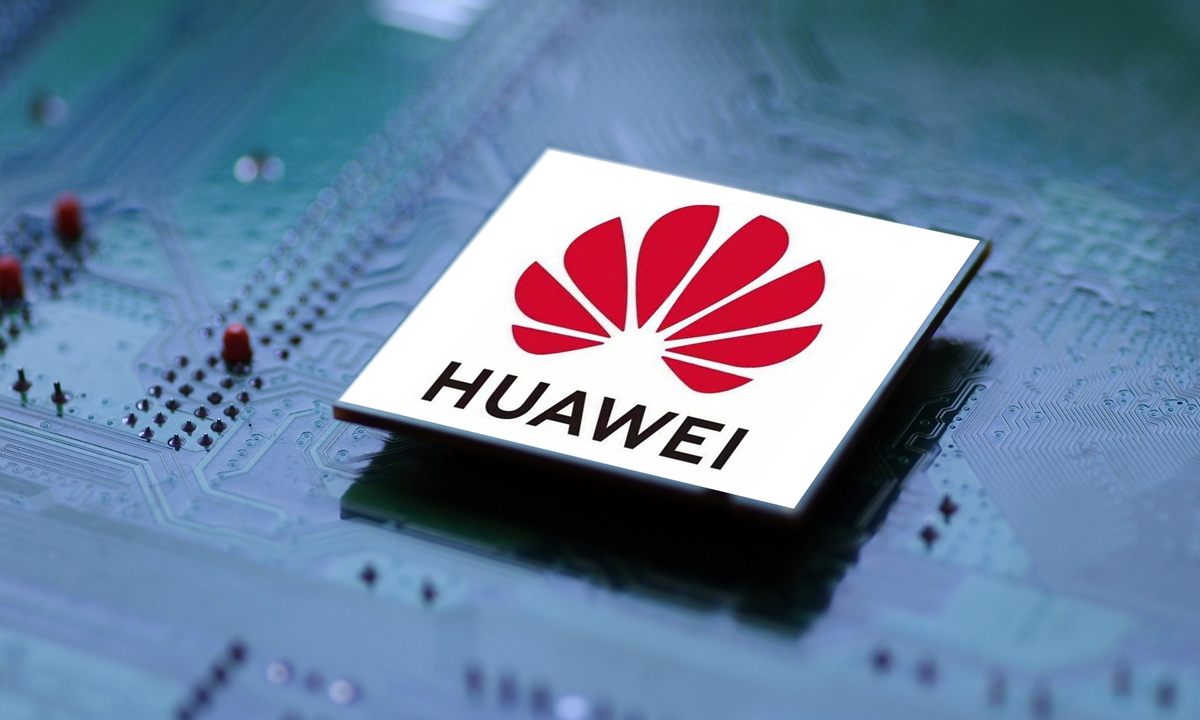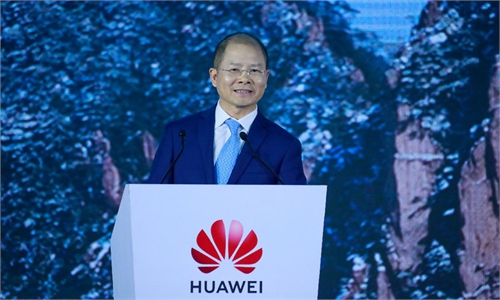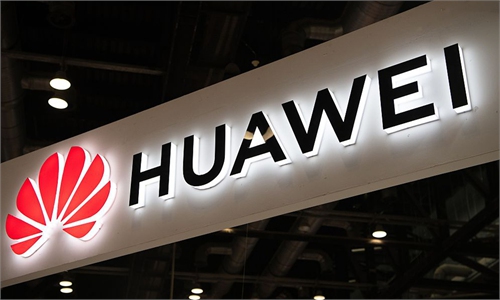Huawei to focus on HarmonyOS, openEuler same time, transforming amid chip ban ‘painful’: executive

Photo:VCG
Huawei will focus on the two operating systems, namely the HarmonyOS and openEuler at the same time, both will be open source, in an effort to solve the domestic stranglehold problem of lacking its own operating system in basic technology, Huawei's rotating chairman Eric Xu Zhijun told reporters at a roundtable interview on Friday.
Xu introduced that while Harmony is used in smart terminals, IoT terminals, and industrial terminals; openEuler will be used in servers, edge computing, and cloud infrastructure. The two operating systems can cover various scenarios to solve the current situation of a lack of an operating system in China.
Huawei had initially announced the openEuler program back in 2019 as an open source operating system. Now, the company is gearing up for the launch of a new openEuler OS on Saturday.
The move is also part of Huawei's efforts of transforming itself into a service provider rather than a hardware maker amid the US chip ban.
"The transformation process is painful, since it's a transformation of the business model.. But the good news is that we have gradually changed over," Xu said, noting that a frequent reshuffle of its senior executives is a reflection of how hard the transformation process is.
On Friday, Huawei released 11 innovative scenario-based solutions for customers ranging from public services, transportation, finance, energy to manufacturing sectors, indicating its ambition of "empowering digitalization" in every industry with its ICT capacities.
"Huawei will continue to dive into digital - focusing on scenarios, models, and partners - to help customers succeed in their digital transformation journey. We will integrate ICT with real-life scenarios and processes, and develop a new model of consulting, integration, and operational support," Peng Zhongyang, Huawei's Board Member, President of the Enterprise Business Group, said during the Huawei Connect 2021, Huawei's annual flagship event on Friday.
Huawei Cloud, which was launched just four years ago, has already brought together more than 2.3 million developers, 14,000 consulting partners and 6,000 technology partners, and it also made more than 4,500 services available in the Huawei marketplace, according to the firm.
While in response to a Global Times question of whether Huawei has compensated some of its losses in traditional smartphone businesses from the emerging cloud unit, Xu said its cloud unit is still suffering losses.
"But our cloud businesses are also growing rapidly," Xu told the Global Times, adding that it has no plans of selling, diverting or listing cloud businesses, and energy subsidiary Huawei Digital Power.
According to a Reuters report Thursday, US Commerce Secretary Gina Raimondo said the Biden administration "will take further action against Huawei if necessary," after some Republican lawmakers have pressed for more steps.
Huawei has not commented on the matter so far.
Last year, the US had officially cut all channels for Huawei to get access to high-end chips, which industry analysts described as the toughest sanction toward a Chinese tech firm, and also called a halt to its rising smartphone businesses.
In response to the chips shortages problems, Xu confirmed that Huawei has already got US approvals to buy some low-end auto chips that serve its auto unit, while admitting that the US chip cut still poses great challenges for its smartphone businesses, making its 5G handsets unavailable in the market right now.
"We will strive to keep our smartphone businesses afloat," Xu said.



